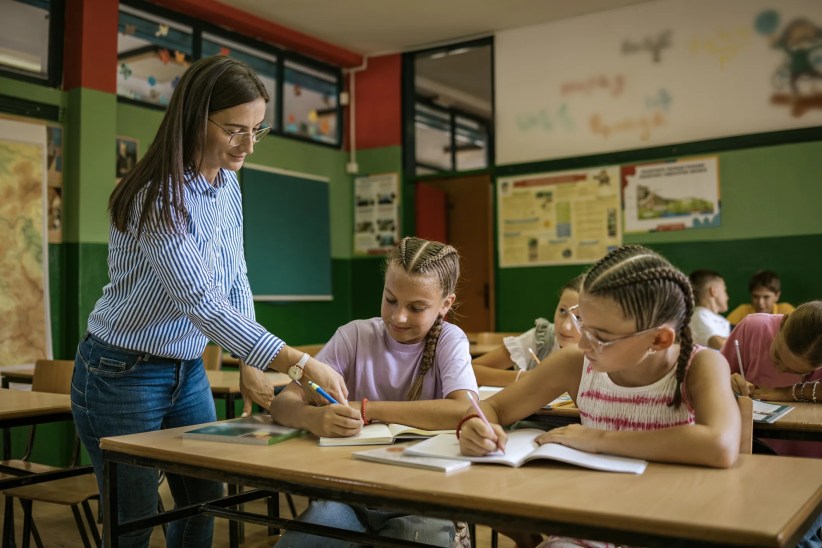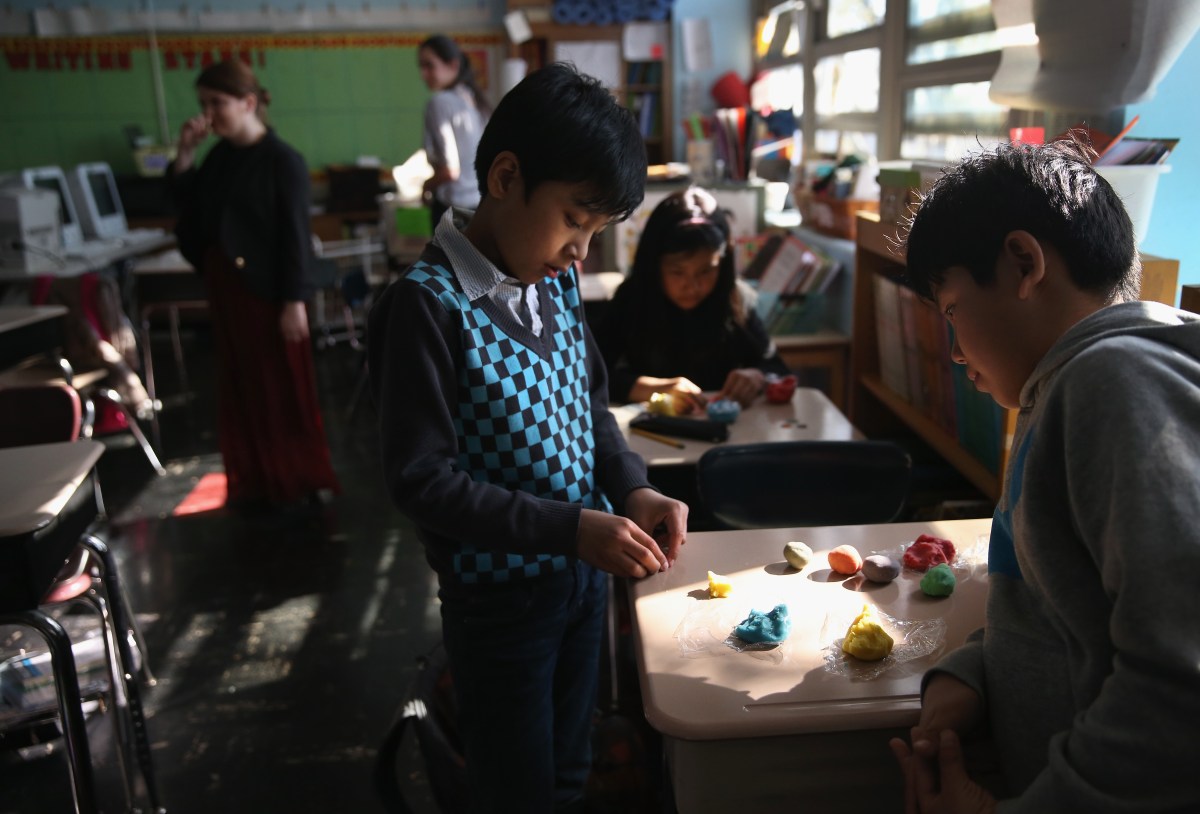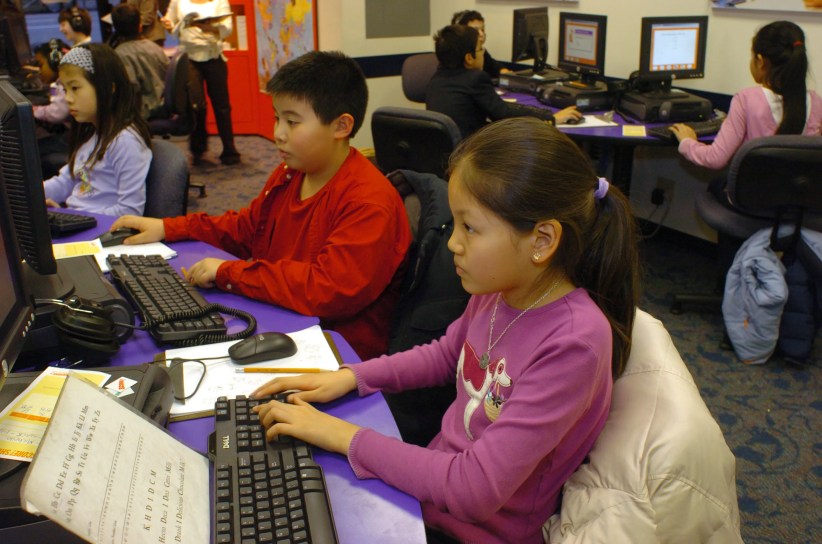 Bestselling author, journalist, and father-of-two Paul Tough has devoted his career to answering the question of why some children succeed—and how educators, parents, and school communities can better serve struggling kids of all ages, from pre-K classes to high school seniors. He has written two previous books on the subject: Whatever It Takes: Geoffrey Canada’s Quest to Change Harlem and America, about the founding of the Harlem Children’s Zone, and How Children Succeed: Grit, Curiosity, and the Hidden Power of Character,
Bestselling author, journalist, and father-of-two Paul Tough has devoted his career to answering the question of why some children succeed—and how educators, parents, and school communities can better serve struggling kids of all ages, from pre-K classes to high school seniors. He has written two previous books on the subject: Whatever It Takes: Geoffrey Canada’s Quest to Change Harlem and America, about the founding of the Harlem Children’s Zone, and How Children Succeed: Grit, Curiosity, and the Hidden Power of Character,
which looked at the links between stress in childhood and success in life. In his most recent book, Helping Children Succeed: What Works and Why, Tough attempts to find out how schools, teachers, and parents can help children best develop the necessary non-academic skills—like grit and self-control—to thrive. We spoke to Tough about his new book, his thoughts on the state of American education, and how we need to change our thinking about how kids learn.
What do you believe is wrong with our education system today?
I don’t want to be one of those people who is uniformly negative about what’s happening in American schools. I think there is a ton of positive stuff going on. That said, I think we have two big challenges in our education system, neither of which I think we’ve got great solutions for right now. One is the class disparity: Kids who are growing up in poverty or in low-income families are, on the whole, doing much worse in school than kids who are growing up in well-off families and well-off communities. I think there are lots of different roots for that problem. I think that the education system and the schools we have, as a whole, have not done a good enough job at finding innovative approaches to helping kids who are growing up in difficult circumstances to do better and to close that gap. Challenge number two is—this is something that I became more aware of working on Helping Children Succeed— that even going beyond the challenges that low-income kids face and the gaps in our academic outcomes, there are significant problems with some of the basic approaches to teaching and education that we have in our schools: The basic principles of American pedagogy, how we teach math, how we teach anything. I think there are some flaws and they have to do with student psychology. The way we teach math doesn’t reflect what we now understand about student psychology, about what motivates kids to come to a deep understanding of math.
You say that intangible qualities like perseverance, grit, and self-belief are the keys to motivation. How do we teach them?
I don’t think that you can teach those qualities the same way you can teach algebra or Revolutionary War history. That doesn’t mean there is nothing teachers can do—far from it. Instead, what teachers need to do to help develop those qualities in their students is create an environment, in the classroom and the school as a whole, that makes students motivated to persevere. It’s about creating relationships between teachers and students. It’s about giving kids a sense of belonging and connection at school. It’s about giving them work that is more meaningful and challenging than they might currently be getting. [And] changing the messages that kids get from discipline policies and homework approaches and the way that grades are given out on tests and on papers. All of that stuff conveys a lot of psychological messages, sometimes explicitly and sometimes implicitly to students, that the research now suggests has an enormous impact on how motivated kids are to persevere, to stick with difficult tasks, and bounce back from setbacks.
A central idea in Helping Children Succeed is that stressful environments at home and school can stop children from developing those intangible qualities. How can we reduce that stress?
At home, parents do a lot to create stress for their kids all the time: How we react to their mistakes, how we talk to them, how we raise our voices. Especially in the first couple years of life, parents are everything to kids—they are where kids are getting their messages about how stressful and difficult the world will be. There are lots of ways to create a calm, connected, and attached sense for kids in early childhood.
In school, it has a lot to do with how we think about discipline and punishment. Kindergarten is a time when what’s important is being able to sit still and focus, follow directions, deal well with your peers, handle criticism, and bounce back from setbacks. All of which is made much more difficult if you grow up in a stressful environment.
For kids who have that experience, rather than think that our job as teachers and educators is to punish those kids who aren’t good at it and reward the kids who are good at it, we need to look at this as a sign that these kids haven’t learned the kind of self-control and self-regulation and other executive functions early in life
that come from growing up in a warm, connected, non-stressful environment. We need to find ways to help develop them in school.
[gravityform id=”13″ title=”false” description=”false” ajax=”true”]
How can teachers at schools without a lot of resources implement these changes?
The disparities in resources that different schools have is a significant problem—we need to do a lot in policy to level that playing field, to give schools in poor communities more resources. That said, changing the culture and the environment does not have to be expensive, because it’s really about the messages that individual adults are sending to kids. That’s about how you talk to kids, how you set up discipline programs, how you define homework, how you talk about results of tests, how you give feedback when kids make mistakes on their work. You don’t need iPads and fancy smartboards.
You identify three characteristics—autonomy, competence, and belonging—as key to the school environment. How can teachers instill these qualities?
When you’re conveying to kids that they can trust you, and that you believe in them, and that you think they belong in that classroom, and that they’re welcome there, that is going to instill a sense of belonging. When you convey to them that they have some sense of freedom, they can make more decisions about what they’re going to study, and how they’re going to do it, that create a sense of autonomy. When you give them challenging work, and allow them to experience being able to succeed at that challenging work, that gives them a sense of competence. All of those qualities are really important for kids to develop that sense of motivation.
In the book, you emphasize that simply telling kids that they need to develop these qualities isn’t enough. Can you elaborate?
I think that’s a central idea in the book. These are better thought of as psychological states, not as academic skills. Just as you can’t tell somebody to be happy or brave, you also can’t tell them to be motivated, or to feel a sense of competence. You need to convey it in a deeper way. What teachers say, the words we say to kids, matter very much. But a lot of times, what kids are hearing are the implicit messages that we’re conveying to them, in terms how we praise them, how we criticize them, how we react to their mistakes and faults. All of that has a huge effect on how motivated kids are to push on.

What are the “relationship toolbox” and the “pedagogical toolbox” you refer to in Helping Children Succeed?
The relationship toolbox is about this idea of kids feeling motivated because they feel a sense of connectedness and relatedness. A lot of that happens in terms of how you listen to kids, how you talk to them, how you treat them, and the opportunities you give them to interact with their peers in a supportive and connected way. But we don’t think about how pedagogy, the way we teach and organize our school day, is also conveying to students these important messages about who they are and what they’re doing in school. When teachers and schools are able to convey both of those messages at the same time, that you belong here and this is a place where you are welcome, but also that I have high expectations for your ability to achieve things, and I’m going to give you the right kind of help and support for you to breach those high expectations, those two toolboxes combine to be what is most motivating and inspiring to kids.
How has having your own family impacted how you view these issues?
I don’t think it’s a coincidence that a lot of what I write about in Helping Children Succeed has to do with early childhood and the relationship and connection with parents and infants. At the same time, my older son just finished first grade. That experience of encountering the American public school system for the first time as a parent made me think a lot more about some of these basic questions involving American pedagogy, as well as how and why we teach things the way we do. I think it really motivated me to think more deeply about the homework he gets, the tests he gets, the feedback he gets from his teachers. And to think about, as a parent, how I can help him hear the kind of messages at home and, ideally, at school that I think are so important.
To learn more about Paul Tough and Helping Children Succeed, visit paultough.com!






















